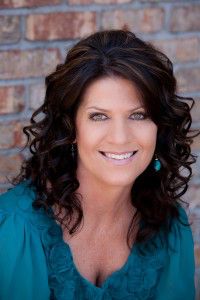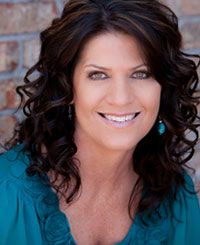Caregiving Begins With Self Care
Caregiving Begins With Self Care
By Becky Feola NABBW’s Associate for Assisted Living and Caregiving About 10 million seniors currently rely on others for daily care, such as help getting dressed, preparing meals or taking medication.
About 10 million seniors currently rely on others for daily care, such as help getting dressed, preparing meals or taking medication.
That number will only increase as more of the nation’s 78 million baby boomers enter old age themselves over the next 15 years.
According to a 2008 USA Today Gallup poll, 41% of all baby boomers are providing care for a living parent and 37% expect to do so in the future.
Taking on the role of caregiver can be demanding; especially when you are juggling caring for an aging parent while caring for a young family and/or holding down a job.
With little time left to think about one’s self, many caregivers fail to realize the toll these demands can take on them personally.
The good news is if stress is recognized, it can be fairly easy to manage. Whether you are caring for an aging family member or a loved one with a chronic disease, it’s important for you as a caregiver is to remember that a vital part of caring for others is caring for yourself.
If you are a caregiver, failing to care for yourself can lead to chronic stress, which can manifest itself in many ways, including: anger, social withdrawal, anxiety, depression, sleeplessness, irritability, lack of concentration and even physical health problems.
While it can be overwhelming, it does not have to change your life completely.
To help manage your life and to make sure your role as a caregiver is not managing you, consider the following tips:
- Don’t let guilt get the better of you
Don’t feel guilty because you also have other obligations and a life of your own. Understand that you are doing the best that you can. In the United States alone, there are nearly 69 million family caregivers — you are not alone.
Give yourself a break by using in-home care assistance, transportation services, volunteer companion services, Meals-on-Wheels and adult day care.
- Educate yourself
Learn as much as you can about the condition your loved one suffers from and seek out resources from organization related to that condition. A simple search online will usually link you to others in similar situations and valuable advice and information.
- Ask for help
Seeking the support of family, friends and community, will allow you to remain in good health and able to continue your role as a caregiver.
- Know your limitations
It’s very likely that at some point, your loved one’s needs will increase to a level you are no longer qualified to care for. Know when to seek a higher level of care such as in-home care providers or assisted living.
- Treat yourself well
Spend time doing things that bring you a sense of pleasure such as going out with friends, golfing or reading. It’s also important to exercise and to watch your diet to remain healthy and reduce your stress levels.
- Create a plan of action
In other words, hope for the best, but prepare for the worst. Consult professionals and discuss your future plans with others to learn how they feel before a crisis occurs. An attorney and a financial planner are good places to start. It is also a good idea to meet with an assisted living placement advisor to learn what your options are.
The most important thing to remember is by maintaining a balance in your life, you will be healthier and happier, which ultimately puts you in a better frame of mind to care for your loved ones.
Becky Feola is the founder of Assisted Living Advantage, located in Phoenix, Arizona. She started her company in 2009, after working for four years as director of the non-profit NJF Center for Caregivers, Inc. Becky has personally been through the process of relocating a loved one to assisted living – more than once.
Her passion for assisting others in locating care facilities for their loved ones comes after eleven years of providing care for her ailing husband and then realizing it was time for assisted living. After her husband was diagnosed with Huntington’s disease, she became his primary caregiver. She immersed herself in research, learning all that she could concerning the disease, the legalities of being an informal caregiver and guardian, the insurance companies, social services, and the legal system.
She has personally seen how difficult it can be to find the perfect care facility without the assistance of someone who understands issues such as licensing, levels of care, and appropriate pricing. Becky views herself as a “matchmaker” and is determined to create the perfect match where your loved one will move one time only to a new home where they will thrive as much as possible during their remainder years. She puts her understanding, vast knowledge of the Phoenix area and her exacting standards to work for her families, with excellent results.




Leave a Reply
You must be logged in to post a comment.